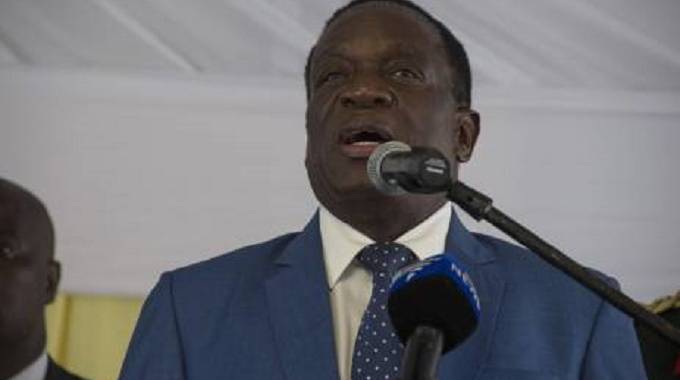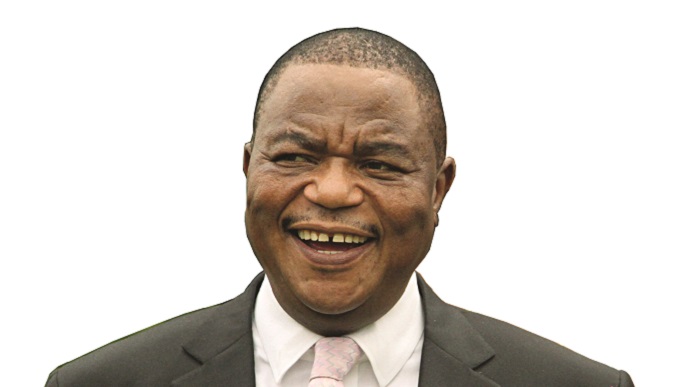EDITORIAL COMMENT:Chinese approach to fighting economic crimes necessary

President Mnangagwa, in keeping with his open-door policy, launched a weekly column in our sister paper The Sunday Mail yesterday.
The column is likely to be a must-read for anyone who gets hold of the leading weekly as the President explains the policies of his administration, lays out his vision and discusses a range of matters of national interest.
Indeed the President has opened Government business up to the public and public scrutiny, a far cry from the situation in the First Republic which operated in a silo of sorts.
President Mnangagwa is very active on social media and interacts with people freely at public forums, including fielding questions from his audiences.
The weekly column advances that open disposition for the President and his Government.
Salient messages in his writing were an observation that the currency mayhem that shook the nation last week was a national security threat and his warning that the net is closing in on those who manipulate the illegal foreign exchange market.
He also assured the nation that their savings in banks will be preserved.
“A great threat to our bid to stimulate productive activity in the economy comes by way of non-productive, speculative activities operating below the radar but involving millions in precious foreign currency and bond notes.
“These nefarious activities thrive on different electronic platforms. New measures will be pursued to stop such malpractices. I call on all of us to tread back into the real economy, away from the current practice where currencies become key commodities that transact in dark markets, controlled by shadowy figures.
“The costs and havoc this wreaks on the whole economy have become quite apparent and most unfortunate. A bold response is merited. To that end, this problem is now being treated as a serious security threat which requires a different response so that we get back to clean, productive and disciplined economic activity operating within norms and rules of the market.”
The experience of last week was frightening indeed for a nation that only 10 years ago suffered the same pain, over a protracted period.
For about a week, the foreign currency exchange rate spiked to US$1 to $6 bond. Prices of most commodities rose in sympathy.
Some businesses, fearful that they might be unable to restock if the black market rates continued to soar, started rejecting the bond, RTGS and other transfers, only accepting the US$ and rand.
Panic-buying set in as consumers thought stocking up on important items could help them in the confusion they reckoned could continue.
Hospitals and pharmacies ran out of drugs and also started demanding payment in foreign currency.
Even the people on medical aid could not be served as their health insurance policies became worthless overnight.
We find it so sad that these developments had dire social and health implications for many of our people.
There is a possibility that some people who needed critical drugs or medical attention failed to access them in last week’s mayhem.
Some may actually have lost their lives as a result while others may have survived, but may not fully recover.
All this happened because of some economic skullduggery by a few criminals.
President Mnangagwa’s observation that the happenings of last week are a national security threat got us thinking deep and long on what sort of punishment the shadowy figures operating in dark markets deserve.
We found the Chinese model of tackling economic crimes quite interesting.
It is effective and worth emulating. In that country, someone convicted of corruption, accepting bribes, smuggling and other economic crimes can be handed capital punishment.
Assuming office in late 2012, President Xi Jinping launched a massive crackdown against economic crimes.
This has helped curb the challenge in that country.
For our purposes, the ultimate punishment may not be applied but, something approaching its severity, such as life in jail for those convicted of economic crime should be considered.
We cannot allow a mafia gang to play games with the economy; with the very lives of the majority as they did last week.
Such underhand activities can create circumstances in which hospitals may not function properly, when health insurance is rendered useless resulting in unnecessary deaths.
They can cause much emotional anguish for the people. Actually, they have potential to cause much alarm and despondency that can collapse a whole government.
That kind of chicanery might have blossomed in the past, but the President’s characterisation of these shadowy activities as a national security threat is a sure signal that the end is nigh.
We argue that robust strategies that are being employed to fight economic crimes in China should be adopted in our country while, of course, making them relevant to the local experience.










Comments